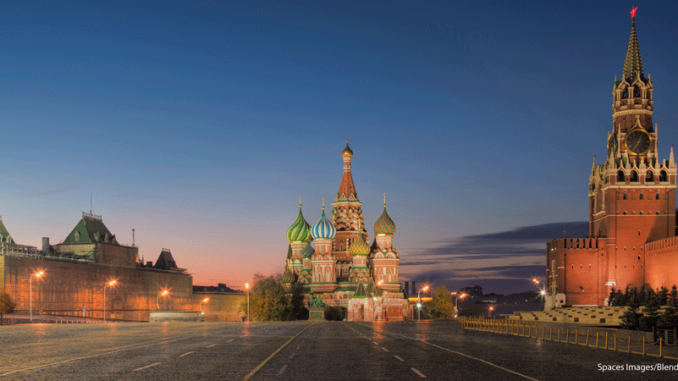
Last week, Russian president Vladimir Putin–who is up for re-election later this month–gave a fiery annual address to his country. In it, he talked a lot about domestic policy: improving living standards, cutting the poverty rate in half, emphasizing technology and business growth, and growing the economy. But that’s not what earned his speech international attention. He also used the address to brag about the powerful new nuclear weapons Russia has developed and is testing, including an intercontinental ballistic missile called Sarmat, and to show a video of nuclear weapons falling on the United States.
This is just the latest surprising move from a leader who has been accused of everything from human rights violations to authoritarianism, to interfering in the 2016 U.S. presidential election.
So . . . who is Vladimir Putin?
Putin: The Person
Putin was born in 1952 in Leningrad (now St. Petersburg), Russia. He grew up in a communal apartment. In 1975, he graduated with a law degree from Leningrad State University. He married his wife, Lyudmila, in 1983, and has two daughters: Maria (32 years-old) and Yekaterina (31 years-old). Putin and Lyudmila divorced in June 2013, after nearly thirty years of marriage. He is an Orthodox Christian but believes that all faiths should be unified under the government’s authority.
Putin: The Leader
After his graduation from Leningrad State University in 1975, Putin became an intelligence officer with the KGB (the Soviet Union’s secret police). He was stationed mostly in East Germany. In 1990, he retired with the rank of lieutenant colonel. From there, he entered politics, working his way up until he was appointed prime minister by Russian president Boris Yeltsin in 1999. Later that year, Yeltsin resigned, which made Putin acting president. Following that, Putin won the presidential election in 2000. He served two terms, until 2008, when term limits forced him to resign. At that point he became prime minister, and then ran again successfully for president (amid scandal and accusations of voter fraud) in 2012. At the same time, the law changed, making presidential terms six years instead of four.
As president, Putin has been an extremely controversial leader. On the one hand, his first term saw great economic growth. On the other, his questionable policies have always earned him international criticism. He has signed laws banning the U.S. adoption of Russian children (2012), as well as a series of anti-gay laws (2014). In 2013, he defended Syria’s use of chemical weapons against its own civilians. In 2014, he sent an estimated 16,000 Russian troops into Crimea, a peninsula which had once been part of Russia but was given to Ukraine in 1954, essentially invading Ukrainian territory. In 2015, he announced that Russia would begin launching strategic airstrikes in Syria. While Russia claimed that this was to halt the Islamic State, the world suspected that the actual aim was the rebel forces trying to overthrow the repressive Syrian government. And in 2017, a late-night Russian military drill resulted in four ballistic missiles being launched across the country.
Meanwhile, investigations began surfacing into Russian hacking of the 2016 U.S. presidential election. Despite the fact that multiple intelligence agencies have proven otherwise, Putin denies any claims of Russian interference.
2018 Elections
Later this month, Putin, who is now 65 years old, will run for his fourth term as president, which will last until 2024. Though he has refused to participate in televised debates or any other traditional public campaign events, it is still assumed that he will win easily. Unless he amends the Russian constitution, however, he won’t be able to run for a fifth term.
